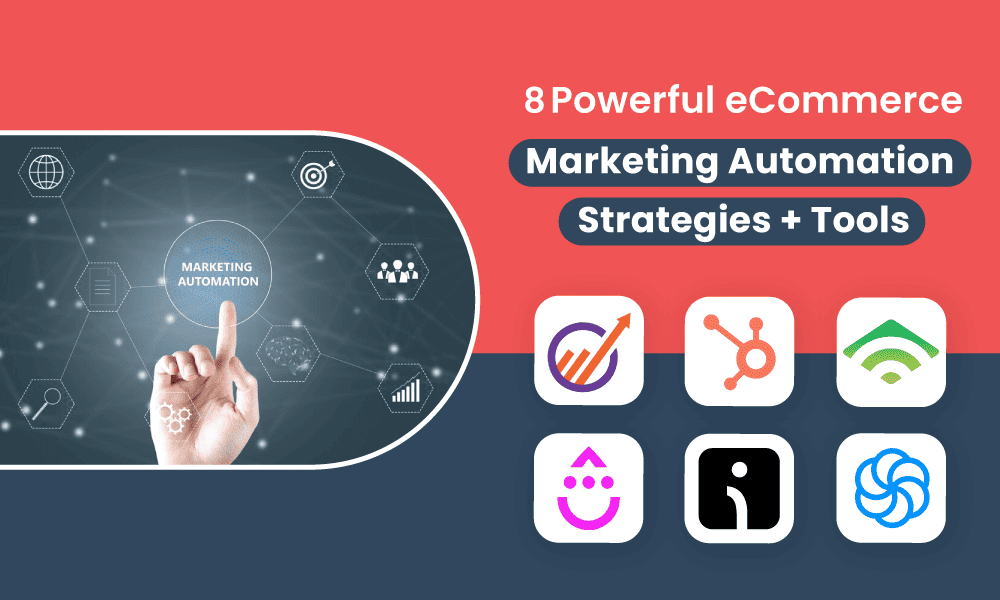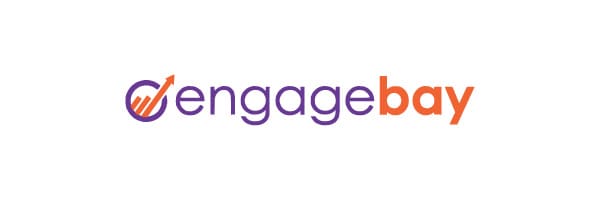According to LianaTech, 86.1% of marketing professionals are familiar with the concept of marketing automation. However, only a fraction of this number can effectively use the tools to achieve maximum results. Reports from Ascend show that only 20% of companies are utilizing these tools to their full potential.
Your eCommerce store will only thrive when you use the right marketing automation software to build seamless workflows. Otherwise, you may end up paying for something that doesn’t help you.
This blog post covers various eCommerce marketing automation strategies you can employ to help you grow your online store. It also details all the right tools you need to build powerful automation workflows.
Table of Contents
What is eCommerce Marketing Automation?
eCommerce marketing automation simply means using software to automate manual marketing tasks, enhance your business workflows, and grow your online store.
Building an eCommerce store involves many manual and time-consuming activities like generating leads, engaging with your potential customers, sending emails, closing deals, tracking contacts, and so on.
Without proper automation, these manual and repetitive tasks can consume time and increase the chances of human errors. Also, it can distract your team from carrying out more important tasks, leading to low productivity and inefficiency.
Some customers who come to purchase products from your online store can easily leave if they find it uninteresting and difficult to navigate.
A study by Forrester reveals that 45% of US online adults will abandon their online purchase if they can’t find a quick answer to their question. So, using automated workflows to run your marketing and sales processes can increase your conversions and drive more sales.
For example, customers who land on your pages and submit their details can receive welcome emails to keep them engaged. Afterward, you can build the relationship further by sending personalized and targeted email sequences.
Moreover, you can also send offers and promotions, and when your customers finally make purchases, you can send ‘Thank you‘ or feedback emails. Integrating a cloud-based contact center can further enhance post-purchase communication, allowing for real-time feedback and customer service.
With proper segmentation and targeting, you can upsell or cross-sell other products to your customers. From here, the cycle repeats for a new set of buyers.
Benefits of eCommerce Marketing Automation
A well-built marketing automation system can boost your conversions, eliminate redundancies, and increase your ROI over time. According to a survey conducted by Marketo, Marketing automation can increase your sales leads by 80% and decrease cost per lead by 33%.
When thinking of marketing automation, many people may be confused wondering whether it’s a technology or a way of marketing. It’s actually both. Marketing automation is just as much a new way of marketing as it is a new tool that most companies have bever used before.
Here are four reasons why you should automate your online marketing processes.
1. Improves customer engagement
A report by SALES Manago reveals that marketing automation drives 173% higher open rates for newsletters and sales mailings. You can send timely and triggered emails to your customers based on the actions they take. Also, you can set up automated workflows that send different emails to different buyers according to their preferences and interests.
For example, there would be several email sequences for customers who opened your emails, those who clicked on links, others who purchased products, and some who never opened the emails. These triggered emails improve your personalization and help you build better customer experiences.
Read also: 8 Best Email Marketing Software for eCommerce in 2023
2. Helps build stronger relationships
A well-built engagement system can improve your customer relationship and overall experience. By sending valuable content and personalized offers to your customers, you’re gradually imprinting your brand on their minds – this will transform an unknown buyer into a loyal customer.
Moreover, digital marketing automation systems can improve your customer experience by helping you automate customer support, simplify conflict resolution, and provide help on autopilot. For instance, integrating WordPress ecommerce plugins can streamline your online store’s customer service, resolving inquiries efficiently and enhancing user satisfaction.
With a well-built ticketing system, you can track, manage, and resolve less complex issues automatically. You can also build a knowledge base, community forum, or help center to provide useful resources and guides to customers who may get confused or lost.
Read also: The Ultimate Guide To B2B Marketing Automation In The Digital Age
3. Enhances multichannel tracking
Several automation platforms enable eCommerce marketing activities across multiple touchpoints. This will help you identify major platforms where you can easily find your customers.
Consequently, you can optimize your marketing processes to capture more leads across these major channels and touchpoints. This can increase your engagement rate and provide better customer experiences.
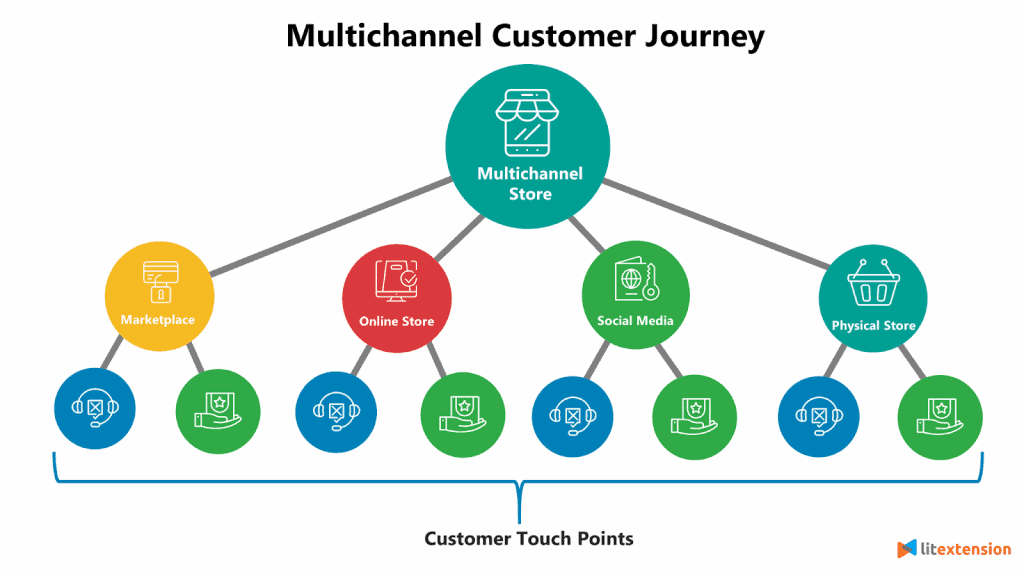
4. Provides accurate reporting and insights
eCommerce marketers who use well-built automation systems can easily track and monitor their performance over time accurately, as opposed to using manual methods. According to Micro Strategy, 60% of companies around the world use data and analysis to drive processes cost-efficiently.
These automation platforms can ‘reveal’ visual reports of your activities so far, giving you a visual representation of your activities. This will help you spot loopholes in your performance and allow you to improve. You can also predict your progress with the available data and useful recommendations.
The marketing automation tool collects data and insights that enable you to craft better strategies.
Read also: BigCommerce vs Magento: Features, Pricing, and More Compared
Enhance Your Email Marketing
Want to make your emails more impactful? Check out our beautiful, easy-to-customize HTML email templates. Designed to boost engagement, these templates from EngageBay will help your emails stand out. Just customize the images, headings, and CTAs for your brand, and hit send in a few minutes!
7 eCommerce Marketing Automation Strategies for Your Online Store
Your online store may not thrive if you try to carry out all activities manually. Also, poor automation workflow is as good as no automation – they all have negative effects on your brand. Knowing the right eCommerce marketing automation strategies will simplify your business processes and help you grow faster.
These strategies include:
- Triggered emails
- Dynamic content
- Segmentation and personalization
- Using chatbots
- Lead scoring
- Automated landing pages
- Cross-selling and upselling
Read also: Workflow Automation Explained (with stats + examples + best tools)
1. Send out triggered emails
Triggered emails are automated emails sent based on pre-defined events, actions, or user behavior. According to Ascend, 65% of marketers automate their marketing efforts, making emails the most frequently automated marketing channel.
Moreover, Litmus, in 2021, reported that 82% of marketers use automation to create triggered emails.
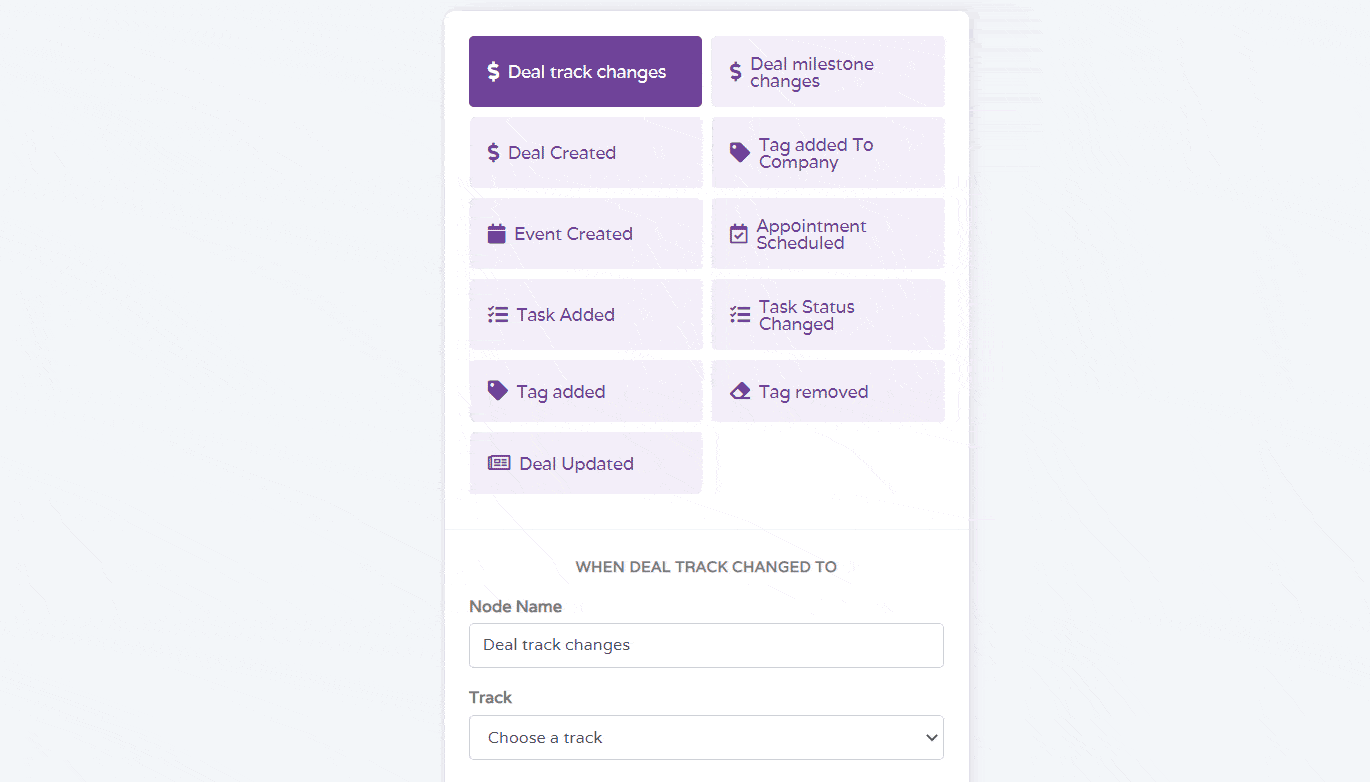
Since these emails are based on customer behavior and interaction, you can send targeted and well-tailored messages for several purposes on autopilot.
For example, if a customer purchases a product from your online store, you can send a “Thank You” email to keep them engaged. This will give room for additional purchases in the future.
You can use trigger automation for the following:
a. Cart Abandonment Emails
These are emails you send to customers when they leave their carts, reminding them of the intended purchase. A study conducted by Moosend shows that 50% of people who click on abandoned cart emails finish their purchase.
While crafting cart abandonment emails, you can also offer a discount or special product to sustain their interest and speed up sales.
Read Also: 9 Automatic Emails You Should Have For Your eCommerce Store
b. Welcome Emails
These emails are sent whenever a customer signs up or subscribes to your newsletter. It also contains valuable content that will help your audience know more about your brand and the products or services you sell.
c. Transactional Emails
These are important emails you send when customers place orders on your online store. They include relevant information such as confirmation of payment, receipt, and other delivery information. A “Thank you” email also follows this upon successful delivery.
These emails keep your customers up to date on how they can access their newly purchased products. Well-crafted and timely transactional emails can lead to more purchases as they give your customers improved shopping experiences.
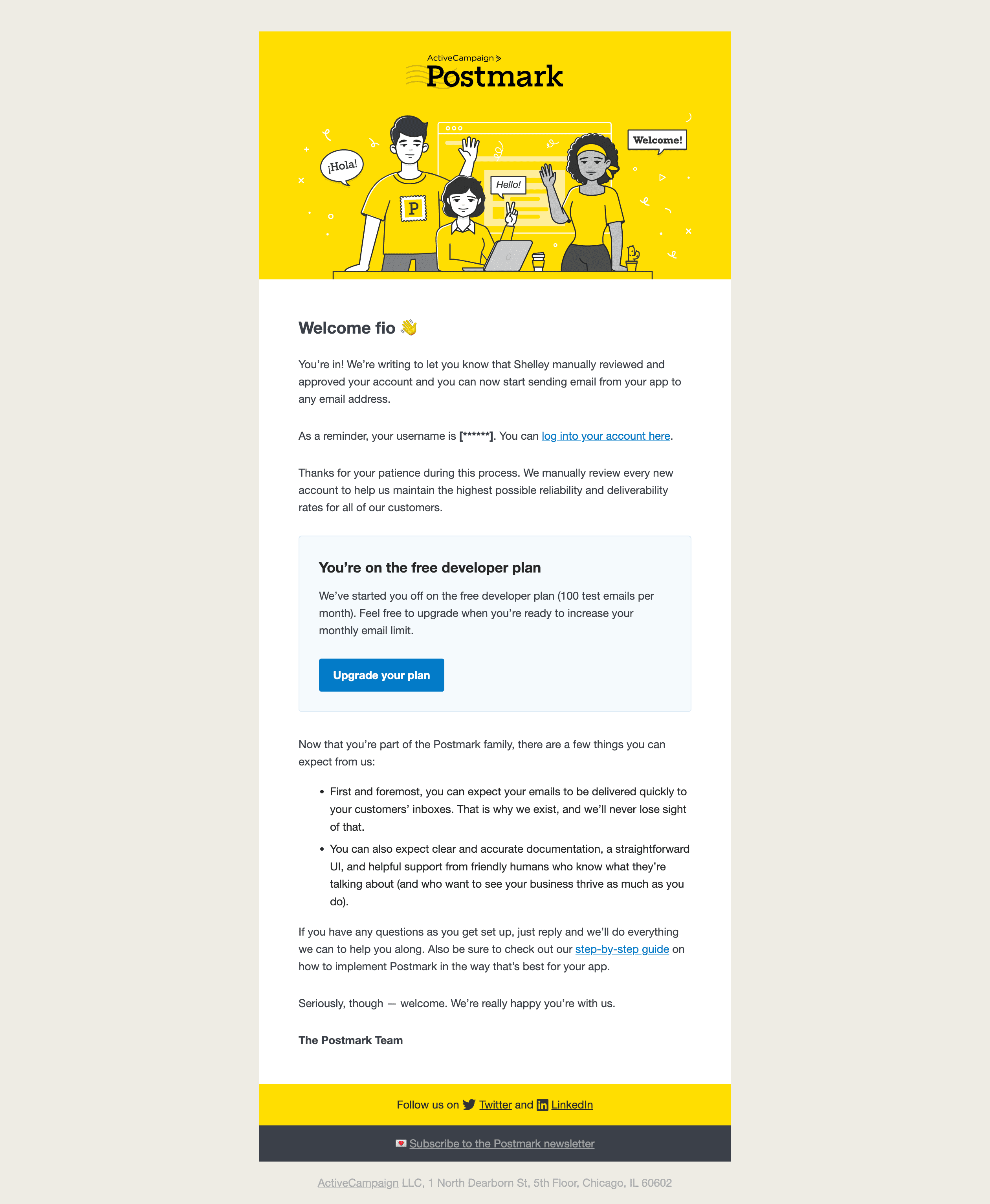
d. Lead Nurturing Emails
After welcoming your leads, one of the ways to engage and keep them updated is by sharing helpful content about your brand, promoting new and existing products, and upselling to old customers. You can use this marketing strategy to turn cold leads into warm and hot leads.
Other triggered email sequences include emails for:
- Updating old prices
- Subscription renewals
- Onboarding new customers
- Re-engagement to win back old or inactive customers
- Customer feedback, review, or surveys
Want readymade, tailored cold email templates? Check out our curated email template resource for various categories. You can mix and match, customize, and personalize your emails with EngageBay.
Read also: 10 Best Trigger Email Marketing Campaigns (+ 5 Top Marketing Automation Software)
2. Build dynamic, personalized content
eCommerce marketing automation platforms have unique features designed to help you craft valuable and targeted content for your customers based on their preferences, demographic data, search queries, or shopping activities.
This gives your customers personalized experiences as they get to see targeted messages that meet their needs at every given stage.
For example, a customer who purchases a bicycle from your online store can receive more personalized and dynamic content and offers around related products, like bicycle pumps, products guides, etc.
3. Segment deeply to personalize well
A good eCommerce marketing automation system has unique capabilities that let you send personalized messages well-suited for different audiences based on demographic data, actions, behavior, and interactions with your platforms.
Segmentation entails putting your customers in different categories and sending tailored email sequences to suit their preferences. For example, new prospects get welcome emails while existing customers may get helpful tips or upsells and cross-sells. Old or inactive customers, on the other hand, could be re-engaged with special offers and discounts to sustain their interests.
Read also: eCommerce Brands: 10 Brands to Watch in 2023
4. Use chatbots
Reports show that business leaders who used chatbots increased their sales by 67%. Chatbots help you drive engagement and generate more leads by building automated workflows for surveys, polls, conflict resolution, deal closing, and customer support.
Well-built chatbots work round the clock, and they help you engage with your customers, providing tailored and personalized conversations based on pre-set triggers and actions.
Moreover, adding a chatbot to your eCommerce store will enable you to collect real-time data from site visitors.
👉 Beware of the dangers of overstocking. It can have serious consequences for your business.
5. Get good at lead scoring
All leads are not equal – while some are ready to buy, others may take a longer route. Based on pre-defined triggers, events, and actions, you can increase your marketing efforts by focusing on leads that are ready to buy.
Sending the same emails to all your leads may not be an effective strategy for increased conversions, Some prospects may decide to be dormant for a long time, making you spend your resources on leads that won’t convert – you can use a different email sequence for these cold leads to keep them engaged until they’re ready to buy.

Well-built marketing automation platforms can identify sales-ready leads by tracking, labeling, and scoring them based on their actions and interests. This will help you assign quality leads to your sales teams for more efficient conversions.
👉 Uncover the secrets of driving growth with our in-depth guide to the best marketing strategies!
6. Automate and optimize your landing pages
Automating and optimizing your landing pages can enhance your conversions, as your customers will receive more personalized and targeted offers that suit their interests.
With proper segmentation, you can build several landing pages to target specific sets of audiences.
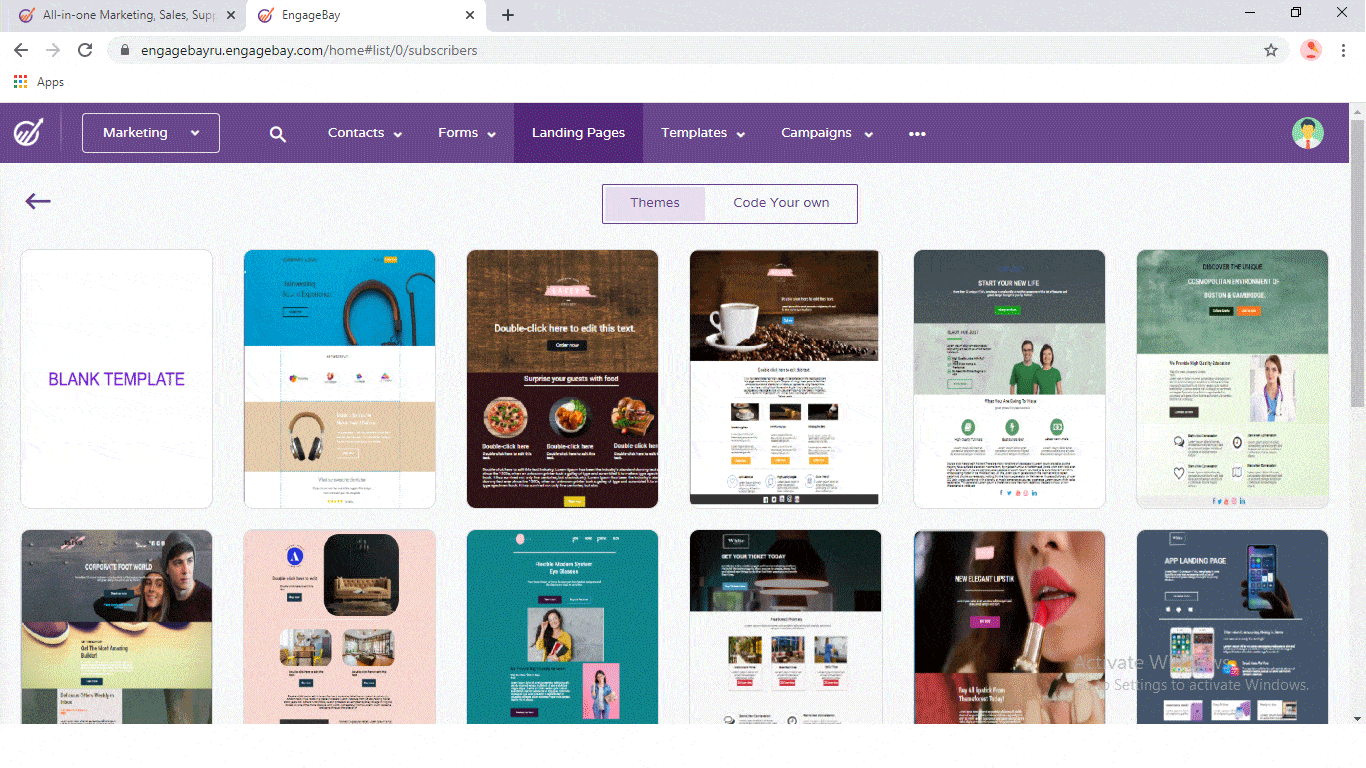
As they interact on your site, the marketing automation platform collects their browsing data and uses it to deliver personalized experiences. For example, if a user is looking for men’s wear, you can promote offers around other related products like accessories, deodorants, etc.
👉 Want emails that wow? Use EngageBay’s free HTML email templates to create stunning campaigns. Quick, easy, and effective. Get started now!
7. Focus on cross-selling and upselling
Cross-selling simply entails promoting and selling related or complimentary products to existing customers. For example, you can cross-sell a headset to a customer who purchased a smartphone, tablet, or laptop.
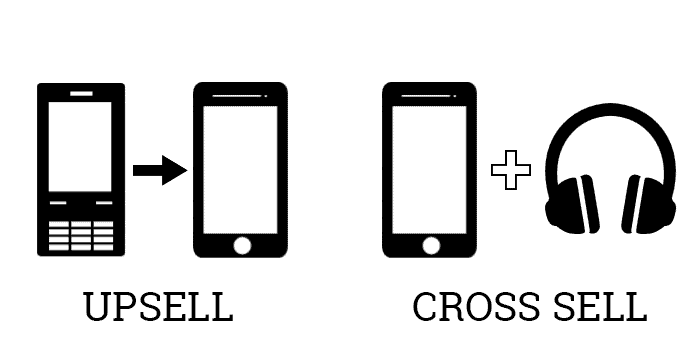
Upselling, on the other hand, means promoting higher offers to existing customers with similar but low-end products. For example, you can upsell the latest version of a laptop to a laptop user. The new product may come at a higher price but with more advanced features.
Statistics from a HubSpot Blog survey show that 72% of salespeople who upsell and 75% of those who cross-sell say it drives up to 30% of their revenue. Automating this process for new and existing customers can compel them to add more useful and well-suited items to their carts because they would always see related and enticing products whenever they make a purchase.
Read also: How To Build a Killer Marketing Automation Strategy
9 Powerful Marketing Automation Tools for Your eCommerce Store
The tools you can use to automate your eCommerce marketing activities should be well-suited to meet your business needs. Certain factors like pricing, ease of use, target audience, capabilities, and even limitations should be considered before paying for a plan.
Some platforms have free plans to help you navigate through the system to see if it’s the perfect fit for your business. Among the various eCommerce marketing automation software, here are nine picks with unique features to help you grow your eCommerce store.
| eCommerce marketing automation software | Starting price | Free plan? | G2 rating |
| Klaviyo | $45/month | Yes | 4.6 |
| Drip | $59/month | No | 4.4 |
| HubSpot | $45/month | Yes | 4.4 |
| EngageBay | $12.74/month | Yes | 4.6 |
| Omnisend | $20/month | Yes | 4.5 |
| Sender | $10/month | Yes | 4.4 |
| GetResponse | $15/month | Yes | 4.4 |
| Brevo (Sendinblue) | $22/month | Yes | 4.5 |
| ActiveCampaign | $29/month | No | 4.5 |
1. Klaviyo
Klaviyo is a powerful marketing automation system designed to help eCommerce store owners deliver better customer experiences. It combines both email and SMS marketing functionalities to help you connect with your customers in the right place and at the right time.
Moreover, it has customizable built-in automation that works well with your segmented list to deliver more personalized experiences.
Klaviyo has benchmarks and predictive analytics that enable you to determine the performance of your online store and give you helpful recommendations for improvement. The seamless integrations with other top marketing tools enable you to have complete ownership of your customer data all in one place.
Pricing
- Free – $0
- Email – $45/mo for up to 1,500 contacts
- Email and SMS – $60/mo for up to 1,500 contacts
Read also: Top Klaviyo Alternatives: Propel Your eCommerce Business Growth
2. Drip
Drip is a special eCommerce marketing automation platform built to help eCommerce marketers create exciting shopping experiences for buyers. It was designed to collect and organize your customer data in a single dashboard for easy tracking and monitoring. The features will help you segment your customers according to their preferences, interests, actions, and behavior.
Drip is an easy-to-use platform with pre-built email templates that help you carry out seamless and targeted email campaigns. Some other features include forms and pop-ups, insights and reporting, smart A/B testing, segmentation, etc.
Pricing
- 2,500 contacts – $59/mo
- 5,000 contacts – $89/mo
- 7,500 contacts – $124/mo
- 10,000 contacts – $154/mo
3. HubSpot
HubSpot provides tailored tools and services to help you simplify your eCommerce marketing activities. The all-in-one CRM solution grants you access to customer data and activities. Also, you can use direct attribution reporting to track your revenue over time.
HubSpot’s live chat functionality lets you connect with your website visitors and customers. Other features include landing pages, targeted ad campaigns, upsell campaigns, etc.
Pricing
- Free – $0
- Starter – $50/mo (paid monthly) and $45/mo (paid yearly)
- Professional – $890/mo (paid monthly) and $800/mo (paid yearly)
- Enterprise – $3,600/mo (paid yearly)
4. EngageBay
EngageBay is also an all-in-one CRM solution for sales, marketing, and support teams. It also has powerful eCommerce features tailored to meet your marketing needs and grow your online store.
The platform helps you simplify your sales process by sending automated and instant transactional emails like newsletters, sign-ups, order confirmation, details and receipts, order status, tracking, etc. Other features include list-building tools, A/B testing, a drag-and-drop editor, abandoned cart recovery, etc, making EngageBay one of the best marketing automation tools for eCommerce businesses.
Pricing
- Free – $0
- Basic – $14.99/mo (paid monthly), $13.79/mo (paid yearly), and $12.74/mo (paid biennially)
- Growth – $49.99/mo (paid monthly), $45.99/mo (paid yearly), and $42.45/mo (paid biennially)
- Pro – $99.99/mo (paid monthly), $91.99/mo (paid yearly), and $84.99/mo (paid biennially)
👉 Create and launch successful email campaigns with EngageBay’s all-in-one solution and stunning, free email templates. Don’t miss out — get started today!
5. Omnisend
Omnisend is a powerful eCommerce marketing automation tool that helps you engage your customers with email and SMS campaigns. Using fully customizable and built-in templates, you can give your shoppers dynamic and personalized experiences.
Also, Omnisend can help you drive sales on autopilot with pre-built automation workflows that cover the entire buyer’s journey/customer journey, from signing up to purchasing a product and returning for additional purchases.
Like every other marketing automation tool, you can connect Omnisend to other eCommerce platforms like Shopify, BigCommerce, WooCommerce, Wix, etc.
Pricing
- Free (email) – $0/mo for up to 250 contacts
- Standard (email) – $20/mo for up to 1,000 contacts
- Pro (email + SMS) – $59/mo for up to 1,000 contacts
Looking for a more flexible solution to Omnisend? Our article on the top Omnisend alternatives will help you find the perfect fit.
6. Sender
Sender is a tool that lets you keep in touch with your customers by creating and sending beautiful emails from a library of pre-built templates. You can also create your customized design with no coding required. Sender is great for carrying out targeted email campaigns to help you connect and engage with your customers.
Sender also has a custom HTML editor that allows you to create completely custom emails tailored to meet your brand’s needs. Other features that help improve your eCommerce marketing activities include landing pages and forms, smart automation workflows, insights and reporting, etc.
Pricing
- Free – $0
- Standard – $10/mo (paid monthly) and $8.33/mo (paid yearly)
- Professional – $35/mo (paid monthly) and $29.7/mo (paid yearly)
- Enterprise – (custom pricing, contact sales)
7. GetResponse
GetResponse is an all-in-one marketing automation platform designed to help eCommerce businesses grow and nurture customer relationships. It combines powerful email marketing, SMS campaigns, landing pages, and even webinars into a single platform, making it easier to manage all your marketing efforts in one place.
With its advanced automation builder, you can create personalized workflows for cart abandonment, product recommendations, and post-purchase follow-ups. The drag-and-drop email editor, pre-built templates, and AI-powered tools make it simple to craft professional campaigns that convert.
GetResponse also integrates seamlessly with leading eCommerce platforms like Shopify, WooCommerce, and Magento, ensuring your customer data syncs smoothly across channels. Its built-in analytics and conversion funnels give you actionable insights to maximize sales
Pricing
- Free – $0 (for up to 500 contacts and limited features)
- Starter – $15/mo
- Marketer – $48/mo
- Creator – Starting at $56/mo
- GetResponse MAX (Enterprise) – Custom pricing available
8. Brevo (Sendinblue)
Like Sender, Brevo (Sendinblue) is also an eCommerce marketing software that has more tailored features that enable you to carry out successful email marketing campaigns.
The tracking feature lets you see the best-performing campaigns. This can help you monitor and track your progress, as well as determine your ROI. In addition to generating leads via email campaigns, Brevo (Sendinblue) also allows you to engage with existing customers through transactional and abandoned cart emails.
You can easily integrate Brevo (Sendinblue) with other eCommerce platforms like Magento, Prestashop, BigCommerce, Shopify, etc.
Pricing
- Free – $0
- Starter – $25/mo (paid monthly) and $22/mo (paid yearly)
- Business – $65/mo (paid monthly) and $58/mo (paid yearly)
- Enterprise – $1,000/mo (contact sales)
9. ActiveCampaign
ActiveCampaign is a powerful automation platform that provides unique features that can help you attract more customers and grow your eCommerce store. The automation workflows cover your customers’ entire journey from acquisition to retention.
The pre-built templates allow for easy customization, personalization, and segmentation. ActiveCamaign also provides other useful capabilities such as dynamic content, tracking and attribution, forms, sales pipeline, etc.
Pricing
- Lite – $39/mo (paid monthly) and $29/mo (paid yearly)
- Plus – $70/mo (paid monthly) and $49/mo (paid yearly)
- Professional – $187/mo (paid monthly) and $149/mo (paid yearly)
- Enterprise – (custom pricing, contacts)
Wrap Up
A tool may have excellent features for other marketing activities, but if it doesn’t meet your business needs, it can affect your growth. To get the most out of your automation software, you need to understand your business needs, goals, budget, size, etc. – this will enable you to pick the right software with well-suited capabilities.
Sender and ActiveCampaign are more focused on email marketing, so they’re great options if you are looking to carry out massive email marketing campaigns alone.
If your eCommerce store needs a super affordable marketing automation suite, you can sign up for free on EngageBay, the all-in-one CRM solution for marketing, sales, and support teams.
👉 Boost your marketing efforts with our email templates. Just customize and send!
